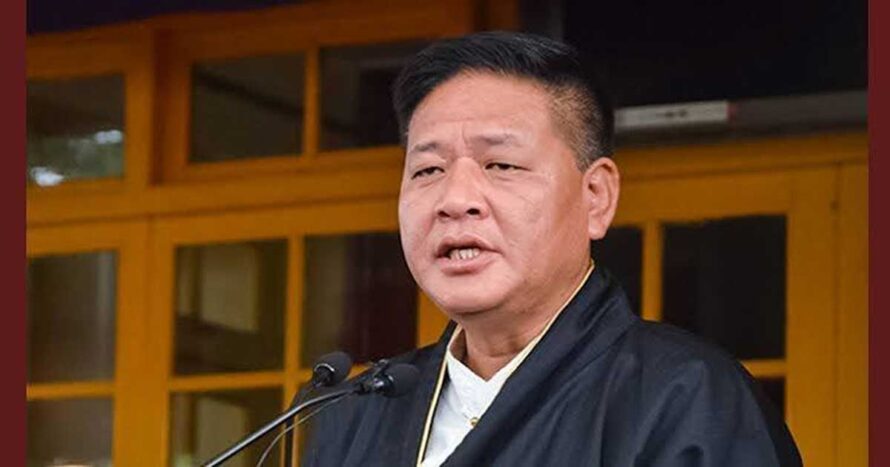
Tibetans in exile have elected Penpa Tsering as their next political leader, in a two stage election, the second of which was held on 11 April 2021. More than 60,000 Tibetans (out of the 83,079 registered voters) voted in this election showing a voter turnout of over 70 per cent.
While the formal results will be announced by the Tibetan Election Commission on 14 May, the regional commissions have already announced the outcome in their respective regions, as mandated. The TEC will be compiling these results in the final announcement. An unofficial count suggests Penpa secured a little more than 34,000 votes (around 54 per cent) against Kaydor Aukatsang, who secured more than 28,000 votes (around 45 per cent of the vote).
Tibetans in around 26 countries participated in the elections to choose their political leader and parliamentarians in a once in a five year ritual. Penpa will be the next Sikyong (also known as president) of the Central Tibetan Administration and is expected to assume office on 26 May.
Penpa ran his campaign under three basic positions to be adopted in his policy making: equitable principles, cooperative means, and forward-looking objectives.
Concerning his plans for resumption of dialogue with the Chinese government, in his election manifesto released during the campaign, Penpa said, “Under the provisions of the Middle Way Policy, no efforts will be spared to achieve a Sino-Tibetan dialogue, and when deemed necessary, devise new ways and means for this purpose, such decisions will be undertaken through the democratic process.”
He has also proposed the setting up of “a voluntary Tibetan Advocacy Group to strengthen our lobbying efforts all around the world, led mainly by the younger generation of Tibetans.”
He added that a “strategic planning committee” will be set up to recommend changes in the working of the departments of Information & International Relations (focusing on its Chinese affairs division) and that of Security, two crucial departments that monitor developments in China and Tibet under the Central Tibetan Administration. The committee will also recommend changes in the working of the Offices of Tibet abroad, as well as that of the Tibetan Policy Institute, a think tank under CTA.
In addition to electing the Sikyong, Tibetans in exile also elected 45 members of parliament. The new parliament will take office on 30 May.